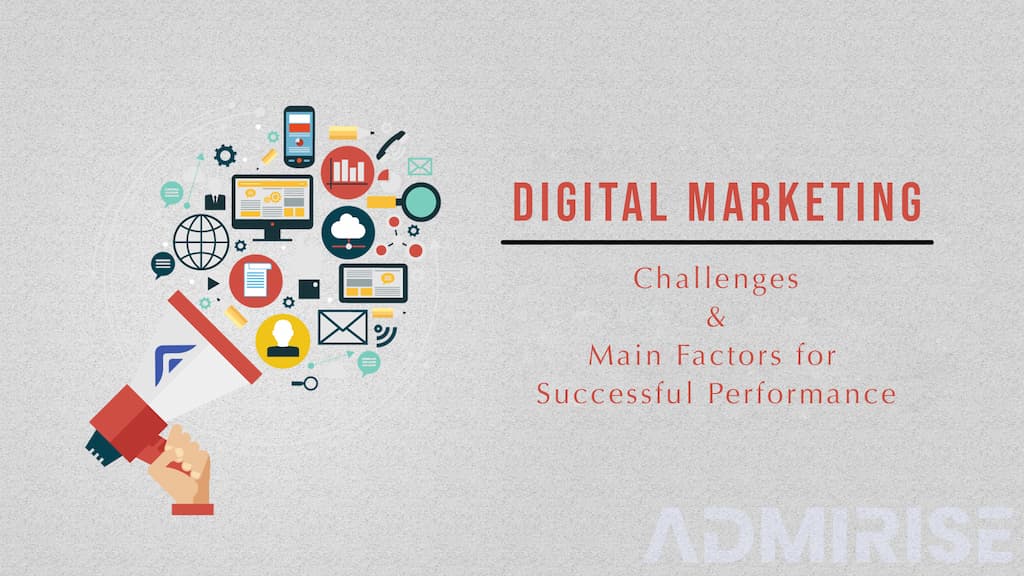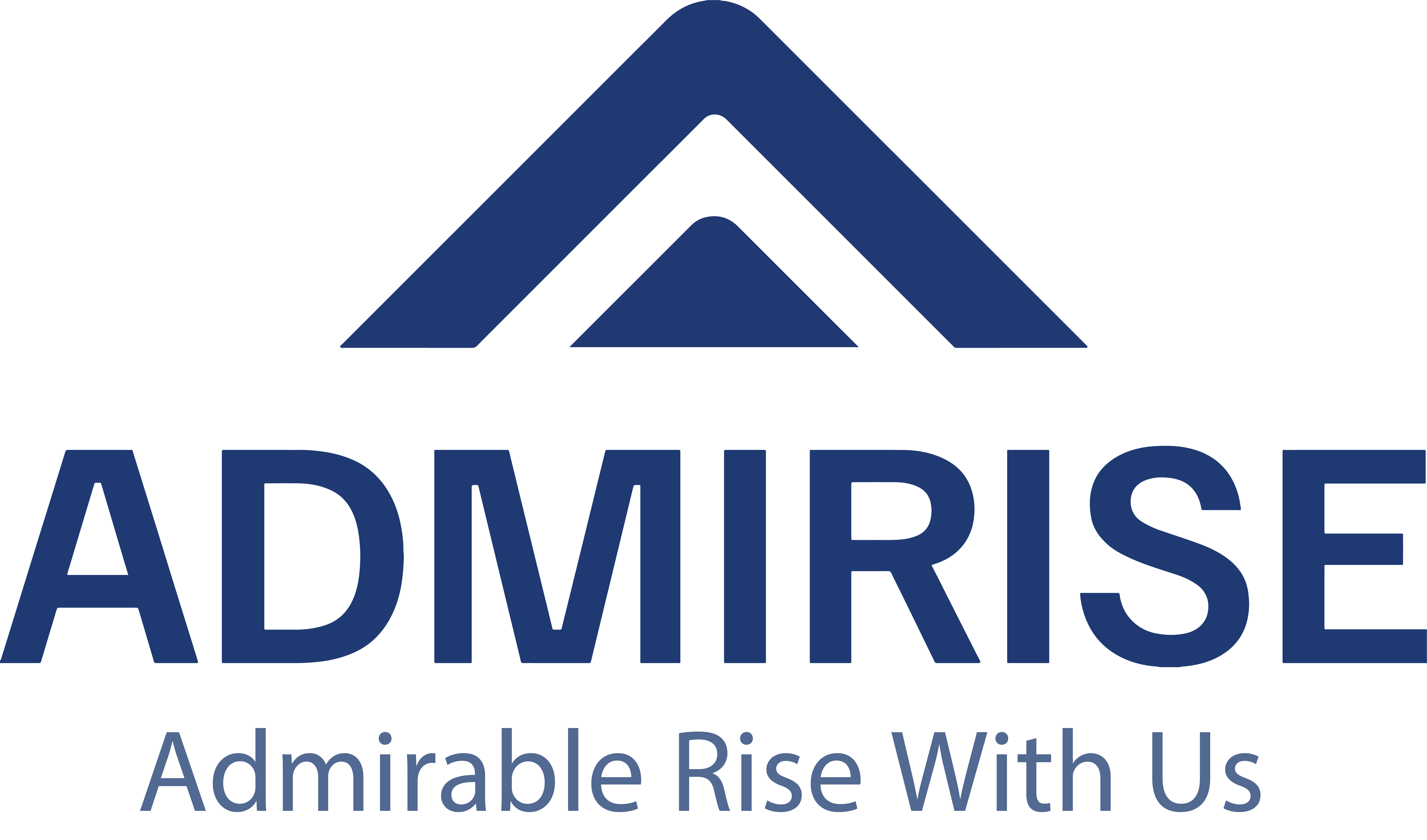
Digital Marketing Challenges & Main Factors For Successful Performance
Jan 25, 2023 in Online Marketing by Dr. Süleyman Demirci
Digital marketing aims to reach and engage with customers through online channels, often to drive website traffic, generate leads, or increase sales. To achieve this aim, marketers use various digital technologies, channels, and tactics, including search engine optimization (SEO), social media marketing, email marketing, content marketing, and online advertising, to promote products, services, or brands.
Performance marketing, as a subset of digital marketing, focuses on achieving specific, measurable results. It involves optimizing campaigns and tactics to maximize their effectiveness and efficiency with a limited budget. Field experts test different approaches and analyze data to determine which strategies successfully achieve the desired outcomes. Therefore, data and analytics often drive better performance in digital marketing, focusing on achieving specific goals, such as increasing website conversions or generating leads.
Performance marketing can be effective for an eCommerce agency, as it focuses on achieving specific, measurable results. The performance-based approach can, therefore, benefit an eCommerce business, allowing the agency to track its digital marketing efforts’ return on investment (ROI) and make data-driven decisions about allocating resources.
It’s important to note that traditional digital marketing techniques can also be valuable for an eCommerce agency. These tactics, such as SEO and content marketing, can help to establish a robust online presence and attract potential customers to the website. In the long-run, traditional digital marketing can help build brand awareness and establish a strong brand identity, which can be essential for sustainable success in the eCommerce industry.
- Critical Factors for Successful Performance in Digital Marketing
- Challenges for Successful Performance in Digital Marketing
- Other Essential Factors for a Successful Performance Digital Marketing
- Importance of Communication Between the Agency and the Customer Company in Performance Digital Marketing
- Conclusion
Critical Factors for Successful Performance in Digital Marketing
Digital marketing has become essential to any business’s marketing and growth strategy. But it is a big challenge to keep up with these constantly evolving platforms and the unique tactics developed for these platforms. Identifying and focusing on the key factors that can drive performance and results are important to success in digital marketing. You can explore below the key factors that can contribute to the successful implementation of digital marketing.
1. Clearly Defined Goals: It’s essential to have specific, measurable, achievable, relevant, and time-bound (SMART) goals to effectively track the success of a performance digital marketing campaign. With clear, measurable goals, it can be easier to determine a campaign’s success and optimize it effectively.
2. Data-Driven Decision Making: Performance digital marketing relies on data and analytics to track and measure the effectiveness of campaigns. It’s essential to have a strong understanding of analytics tools and how to use them to track and optimize campaigns. Access to necessary data and analytics is required to examine a campaign’s effectiveness and make data-driven decisions about optimizing it.
3. Testing and Experimentation: Performance digital marketing often involves testing different approaches and analyzing data to determine the most effective strategies. It’s essential to be willing to try new things and continuously optimize campaigns based on data. Without a willingness to try new things and test different approaches, it can be challenging to identify the most effective strategies for an ongoing campaign.
4. Targeted and Personalized Marketing: Performance digital marketing involves reaching and engaging with the right customers at the right time with the right message. It’s crucial to use targeting and personalization techniques to ensure that marketing efforts are relevant and effective. With targeted and personalized marketing efforts, reaching and engaging with the right customers at the right time with the right message can be easy.
5. Robust Website and Landing Pages: To effectively convert website visitors into customers, it’s crucial to have a well-designed, user-friendly website and effective landing pages. If the website or landing pages could be better designed and more user-friendly, it could be easier to convert website visitors into customers.
6. A Solid Call to Action: It’s essential to communicate the desired action (such as making a purchase or signing up for a newsletter) and make it easy for users to be encouraged to take that action.
7. Continuous Optimization: Performance digital marketing is an ongoing process, and it’s vital to continuously optimize campaigns based on data and insights. Such optimizations may involve testing new approaches, adjusting targeting and messaging, and making other changes to improve performance. Without continuous optimization based on data and insights, it can be challenging to enhance the performance of a campaign over time.
Challenges for Successful Performance in Digital Marketing
While many factors can contribute to success in performance digital marketing, several challenges and obstacles can arise. Understanding and quickly addressing these challenges will make it easier to achieve goals in digital marketing. Some of the challenges that must be overcome to be successful in digital marketing are:
1. Limited Budget: Digital marketing can be expensive, and achieving success with a limited budget can take time and effort. Intelligently optimizing campaigns and allocating resources are essential to achieve the best results.
2. Competition: In many industries, there is fierce competition for online customers. It can be challenging to stand out in a crowded market and attract the attention of potential customers.
3. Changing Algorithms: Search engines and social media platforms constantly update their algorithms, which can impact the effectiveness of digital marketing campaigns. It’s essential to keep up with these changes and adapt campaigns accordingly.
4. Ad Fatigue: Online ad fatigue occurs when people become immune to or annoyed by ads, which can decrease their effectiveness. Finding ways to keep ads fresh and engaging is essential to avoid ad fatigue.
5. Data Privacy Concerns: With increasing data privacy and security concerns, campaigns must comply with relevant laws and regulations.
6. Limited Technical Skills: Digital marketing requires specific technical skills, such as knowledge of analytics tools and coding languages. These skills are necessary to implement and optimize campaigns effectively.
Other Essential Factors for a Successful Performance Digital Marketing
Digital marketing is getting complex in every field. Therefore, in addition to the key factors, it is also important to consider a comprehensive digital marketing strategy, user experience, mobile friendliness, integration with traditional non-online marketing tools, and keeping up with the trends. Prioritizing these factors can increase the success of change in the competitive digital marketing world.
All these factors play significant roles in achieving a successful digital marketing performance. With transparent engagement and communication with a customer company, the agency can reach better success during service time.

1. Comprehensive Digital Marketing Strategy: A well-defined and comprehensive digital marketing strategy can ensure that one aligns all efforts toward the same goals and objectives. Strong branding and messaging: Having a clear and consistent brand identity and messaging can help to establish a robust online presence and build trust with potential customers.
2. User Experience (UX): Ensuring a website’s user experience is smooth and seamless can help increase conversion rates and improve overall performance.
3. Mobile Optimization: With the increasing use of mobile devices to access the internet, it’s essential to ensure that the digital marketing agency optimizes websites and campaigns for mobile devices.
4. Integration With Offline Marketing Efforts: Integrating digital marketing with offline marketing efforts, such as in-store promotions or events, can help drive brand awareness and engagement. Legal and regulatory compliance: It’s essential to ensure digital marketing efforts comply with relevant laws and regulations, such as data privacy regulations.
5. Staying Up-to-Date with Industry Trends and Best Practices: The digital marketing landscape is constantly evolving, and competition is increasing. Thus it is essential to follow industry trends and best practices to ensure effective campaigns.
Importance of Communication Between the Agency and the Customer Company in Performance Digital Marketing
Effective communication for success is a must in every branch of the business world. When a customer comes to an agency, it is vital to have clear and open communication between the two sides. Here are some reasons why communication and strong collaboration between the agency and the customer are critical:
1. Setting Goals And Expectations: Good communication helps to ensure that both parties have a clear understanding of the goals and objectives of the campaign. Good communication provides a better discussion of the target audience, desired outcomes, and available budget and resources.
2. Developing a Strategy: Effective communication is essential for a comprehensive marketing strategy. Creating a robust system should also include discussing the target audience, desired outcomes, and available budget and resources.
3. Implementing the Campaign: Good communication is crucial for ensuring that the experts implement the campaigns correctly and effectively. Such implementation includes discussing specific tactics and any essential changes or updates.
4. Measuring and Analyzing Results: Communication is crucial for tracking the campaign’s progress and identifying areas for improvement. Measuring and analyzing results should also include discussing the metrics and data used to measure success and identify any issues or challenges that arise.

Conclusion
Digital marketing is critical to any business marketing strategy and growth plans. It involves using new digital technologies, channels, tools, and tactics to promote a product, service, or brand. And focusing the achieving specific, measurable results, performance marketing involves maximizing the campaign’s effectiveness and efficiencies with a limited budget. Key factors contributing to a successful digital marketing performance include clearly defined goals, making data-driven decisions, testing and experimenting, targeted and personalized marketing, continuous optimization, and having a robust website and landing pages. Creating a strong brand identity and an online presence is also important.
Effective communication between an agency and a customer is essential for ensuring that a performance digital marketing campaign is successful. It helps to establish clear goals and expectations, develop a comprehensive strategy, implement the campaign effectively, and measure and analyze results to identify areas for improvement as the other customer units align with the process of performance digital marketing. That is, digital marketing efforts should be integrated with other departments, such as sales and customer service, to ensure a seamless customer experience and drive overall business goals.
Accordingly, the right approach will depend on the specific goals and needs of the company. It may be helpful to use traditional and performance digital marketing techniques together to achieve the desired results as the agency tries to eliminate all barriers online regarding the factors discussed in this text. Further, the proper engagement between the agency and the customer brings the expected success earlier!







